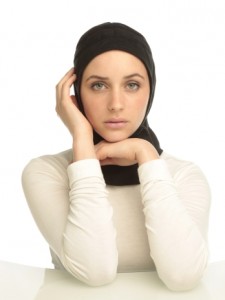
To some, it can seem intimidating. To others, it is outdated and oppressive. Yet to those whose faces are shrouded beneath it, it can be a liberator, symbolising religious modesty in an increasingly secular West. To others still, it is nothing more than a piece of cloth. The future of the veil, Liberal Democrat minister Jeremy Browne told this newspaper, must be urgently reconsidered. “There is genuine debate about whether girls should feel a compulsion to wear a veil. We should be very cautious about imposing religious conformity on a society which has always valued freedom of expression.”
The matter is garnering political momentum. Philip Hollobone, Tory MP for Kettering, has proposed a private member’s Bill that would make it an offence for a person to wear “a garment or other object” intended to obscure their face. Backing his proposal is Dr Sarah Wollaston, MP for Totnes. Writing in this newspaper yesterday, she described veils as “deeply offensive”.
Striking the right balance – between an outright ban and leaving the issue to the discretion of schools – is difficult. Official guidance on facial coverings in schools – from the niqab, a veil in which the eyes are visible, to the burka, a full body veil in which the eyes are covered by mesh – was updated last year. Though the Department for Education has conspicuously avoided legislation, it backs head teachers who ban veils “on the grounds of health, safety and the protection of the rights and freedoms of others”.
Now public opinion in Britain is swinging. A recent YouGov poll of 2,205 adults found that 67 per cent supported a complete sanction on wearing the burka. Proponents of a ban say schools in multicultural areas are calling out for clear restrictions on facial coverings, which, they argue, can impede learning, socialising and jeopardise an institution’s security policy.






